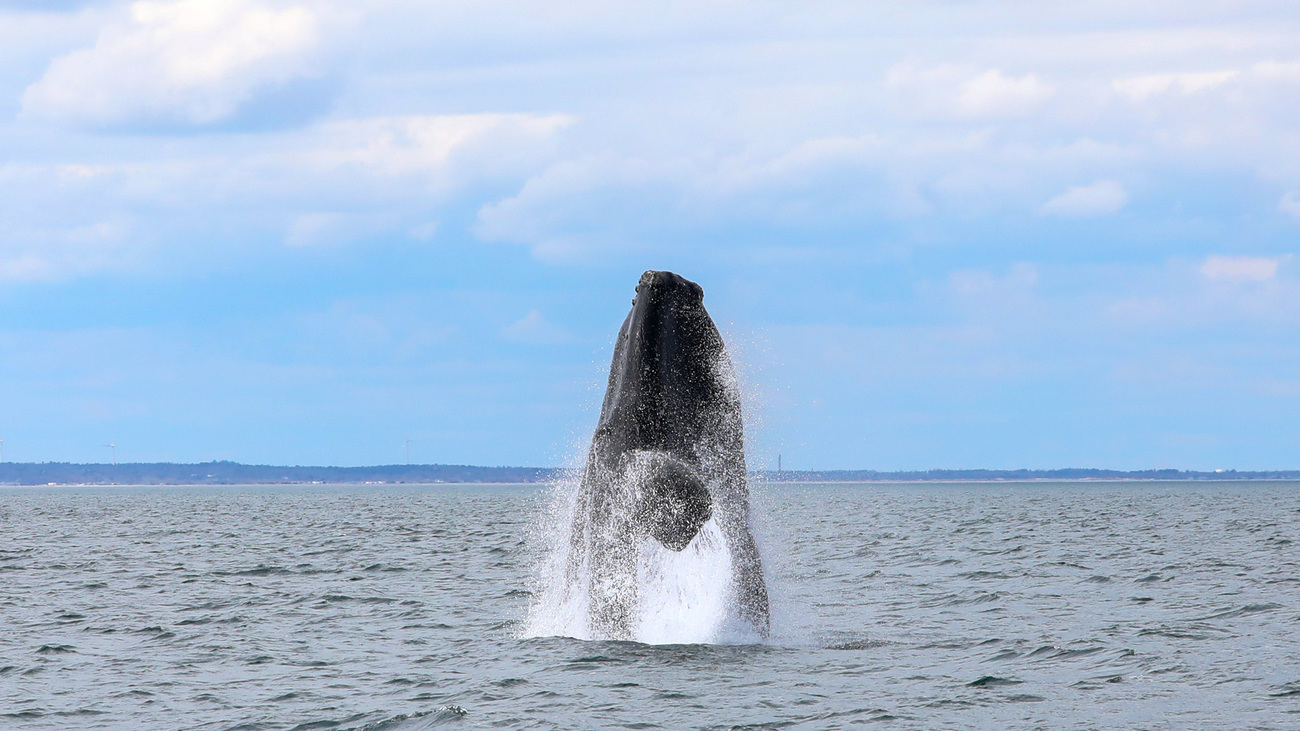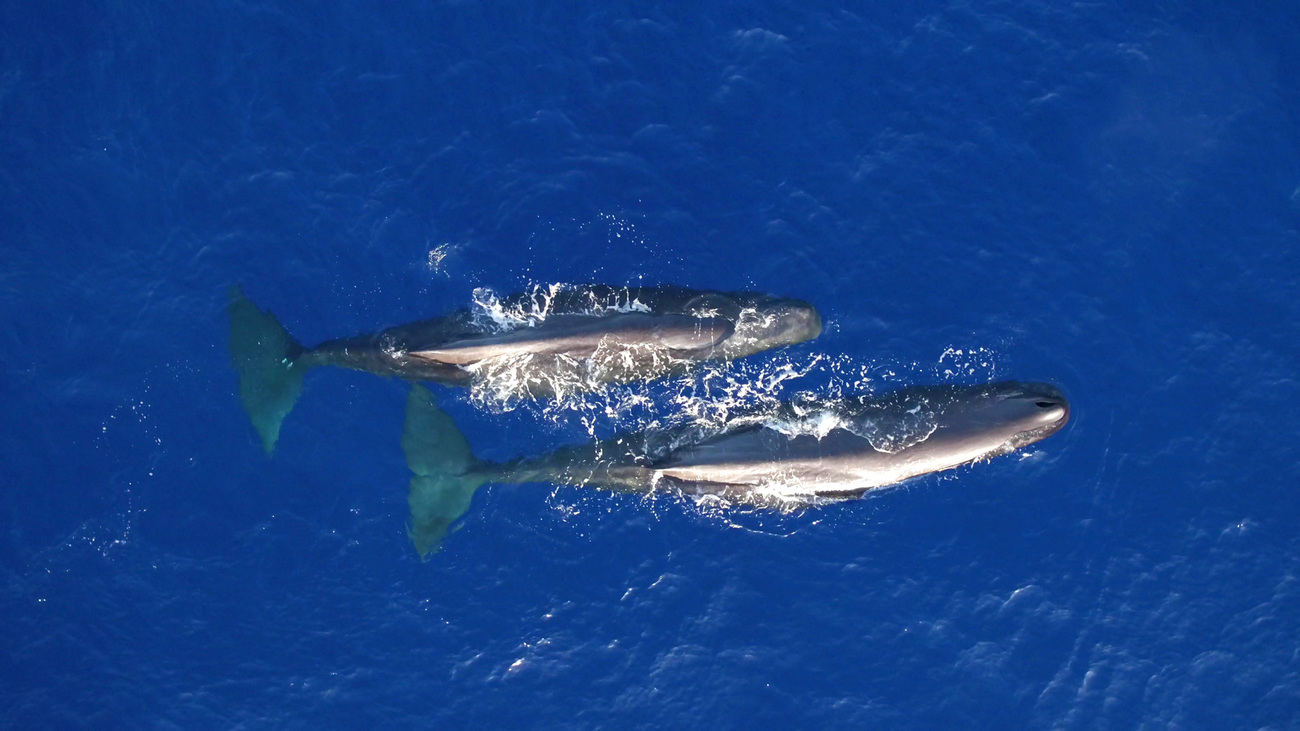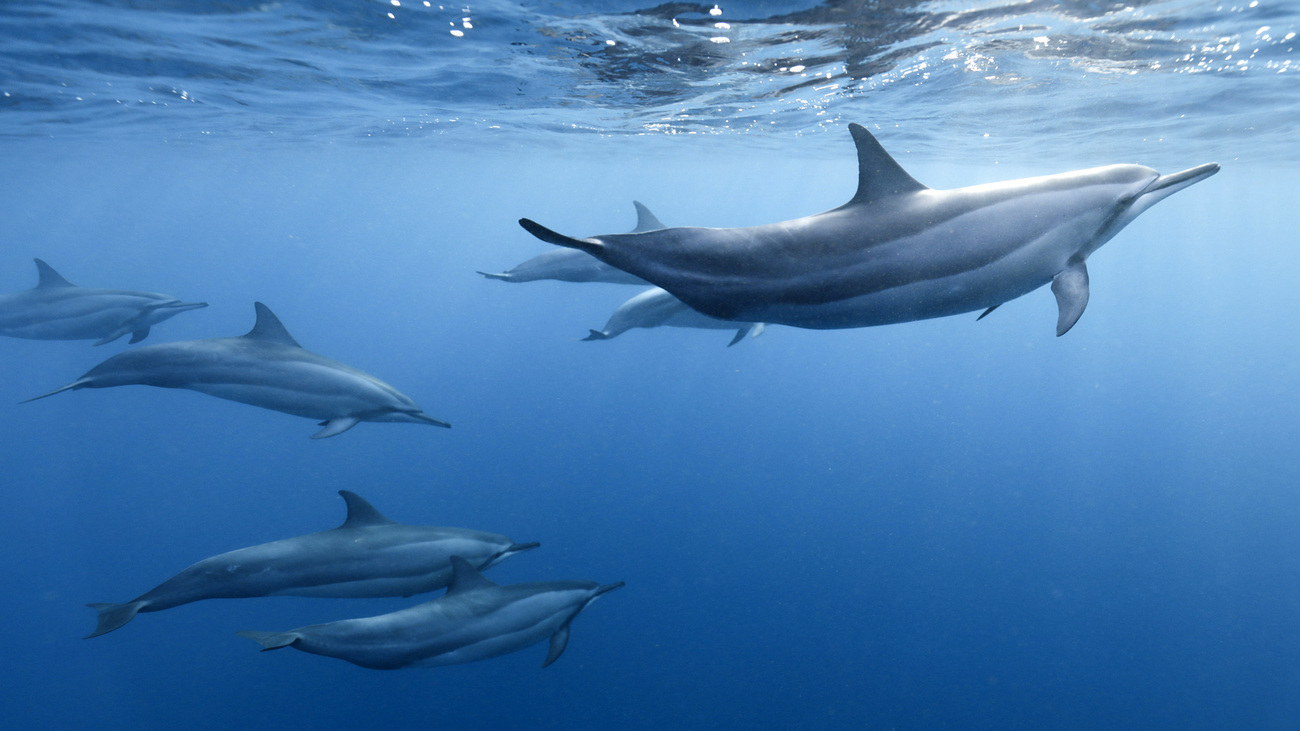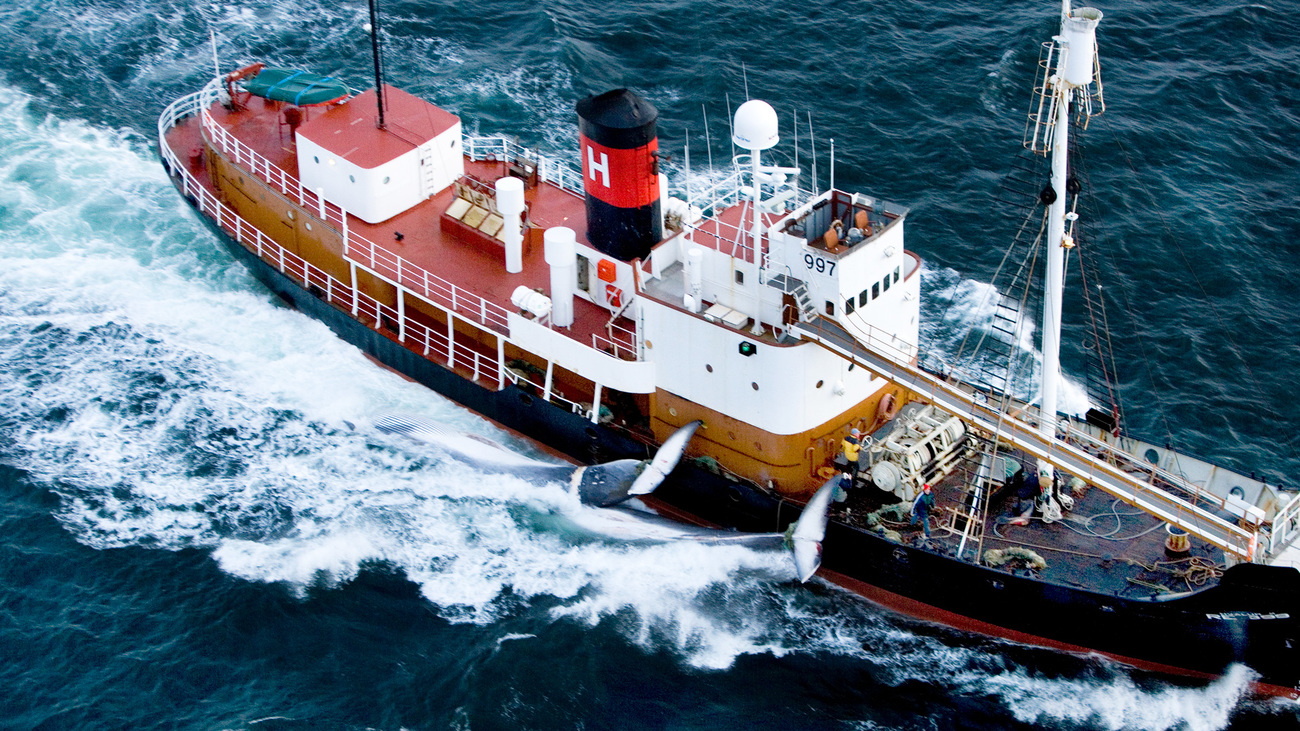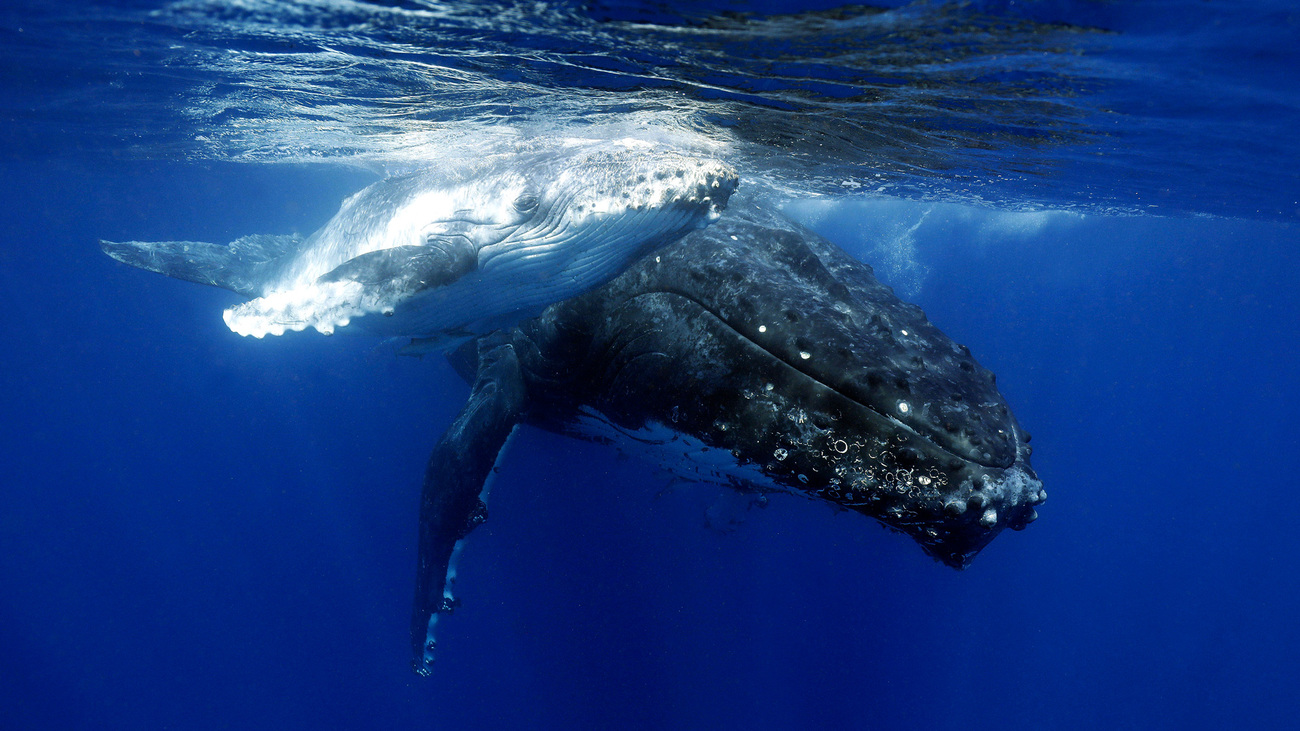marine conservation
marine conservation
A healthy planet needs a healthy ocean. And yet today, our world’s marine life and marine habitats face ever-increasing threats from human activities such as shipping, unsustainable fishing, industrial development and pollution. Healthy populations of large marine animals, particularly whales and sharks, play a key role in regulating ocean ecosystems and keeping carbon locked in the ocean.
Protecting these large, iconic marine animals is critical, and protecting them has further benefits for other species and vital habitats throughout the world’s ocean. IFAW’s Marine Conservation programme continued making impact in FY22 in three key areas: saving the North Atlantic right whale, addressing collisions between ships and endangered whales and reducing underwater noise pollution. Section 5
protecting marine life and habitats all over the world
saving the North Atlantic right whale
In FY22, IFAW continued working to reduce threats to North Atlantic right whales (NARW) from entanglement in fishing gear and from vessel strikes in U.S. and Canadian waters. We collaborated effectively with industry, government and stakeholders to improve prospects for the survival of this critically endangered species. IFAW has led an increasingly effective coalition of NGOs to influence both state and federal management processes to accelerate progress while expanding incentives for adopting 21stcentury fishing gear solutions.
IFAW helped a group of “early adopter” fishermen secure a first-of-its-kind exempt fishing permit to use on-demand fishing gear in the Massachusetts Bay restricted area, an area of federal waters otherwise closed to fixed-gear fishing operations during peak right whale occurrences. This is an achievement that will result in a real impact by keeping fishermen on the water while also keeping NARWs safe.
Our advocacy work helped increase federal funding for NARW conservation by US$16 million (for a total of US$21 million). IFAW also supported the first-ever installation of thru-hull transducers on four fishing vessels, which are used to signal the acoustic release of on-demand gear and signify a real commitment by early adopters. We’re also helping vessels avoid striking whales by empowering people who spot whales to report their locations in real-time through the Whale Alert app. Our outreach efforts resulted in a doubling of App downloads, to a total of 68,558 users who can report and share NARW and other whale sightings.
reducing the risk of ship strikes for endangered whale populations
With encouragement from IFAW, three major shipping companies are helping to save endangered sperm whales in the Mediterranean. The Hellenic Trench, to the west and south of the Peloponnese and southwest of Crete, is identified as a critical habitat for these whales, of which only 200 to 300 individuals remain.
In January 2022, the world’s largest shipping container company, MSC Group, became the first major company to re-route their ships on the west coast of Greece to reduce the risk of collision with endangered sperm whales. This announcement was followed by a commitment from Euronav to also re-route their ships to avoid high-risk areas along the Hellenic Trench. The German Shipowners Association (VDR) has asked their member companies to do the same. This is the result of years of effort by IFAW and local partners and a critical step in encouraging action by Greece at the International Maritime Organization (IMO) in the near future.
reducing underwater noise and ship strike risk globally
IFAW’s Blue Speeds campaign advocates for the reduction of shipping speeds to 75% of maximum design speed (equivalent to reducing speeds by around 10%) in European Union (EU) waters in order to reduce negative impacts of shipping on marine life and habitats. These slower speeds can reduce shipping underwater noise by 40%, ship strike risk by 50% and greenhouse gas emissions from shipping by 13%.
In FY22, we concluded an economic analysis, which indicates that our proposed reduction of shipping speeds could generate an annual social benefit valued at between €3.4 and 4.5 billion (depending on fuel prices). Our Blue Speeds campaign, which aims to gather widespread public and political support for slower ship speeds in European waters, is preparing for launch in the autumn of 2022.
increasing pressure on Iceland’s last remaining whaling company
As the Icelandic government increases pressure on the last remaining whaling company to end its hunt, public opposition in Iceland against fin whaling increased to 35%—double the number who opposed in a previous survey— according to polling commissioned by IFAW in FY22.
Our decades-long effort to end whaling in Iceland was strengthened in FY22 when the Icelandic Minister of Fisheries & Agriculture announced new animal welfare rules and surveillance requirements for the killing of whales in Iceland. These new regulations are similar to those in place for the slaughtering and hunting of other animals in the country, and are aimed at scrutinising the welfare aspects of whaling.
Studies have shown that it can take up to 25 minutes for a whale to die after being shot with an explosive harpoon. The announcement of new rules and requirements is a significant development that shows Icelandic leaders are examining how whales are being killed in their waters and showing concern for these sentient beings.
IFAW thanks all our donors, supporters and partners around the world who enabled our impact in the area of marine conservation in FY22, with special acknowledgment of:
Dutch Postcode Lottery
Prince Albert II Foundation
The Walt Disney Company
International Union for Conservation of Nature (IUCN): Save Our Species program
Marine Conservation in Oceania
collaborating on action for marine life in the Pacific
IFAW was pleased to participate in a five-day Pacific Regional Marine Species Programme virtual meeting between 28th July and 3rd August 2021 hosted by the Secretariat of the Pacific Regional Environment Programme (SPREP).
Nearly 200 registered participants attended including representatives from Member countries including American Samoa, Australia, Fiji, France, French Polynesia, USA (Hawaii), New Caledonia, New Zealand, Palau, Papua New Guinea, Samoa, Solomon Islands, Tonga, United Kingdom, United States of America, Vanuatu, and Wallis and Futuna, as well as non-government organisations, inter-governmental organisations and the research community.
Following the workshop, SPREP released the Pacific Islands Regional Marine Species Programme 2022-2026 which includes action plans for dugong, marine turtles, whales and dolphins, as well as sharks, rays and seabirds. Each focuses on actions under a set of nine core themes including research and monitoring, climate change, threat reduction, legislation and policy management, capacity building and education and awareness, which together would support the conservation of marine species and their habitats in the Pacific region.
IFAW looks forward to continuing to work with governments and networks across the Pacific region to support the implementation of these action plans in the coming years.
Stay in the know. Be ready to act.
You’ll receive news, updates on activities and on future giving opportunities. You can unsubscribe at any time.